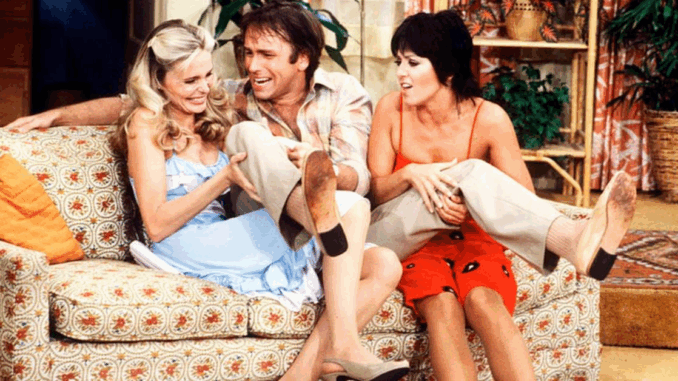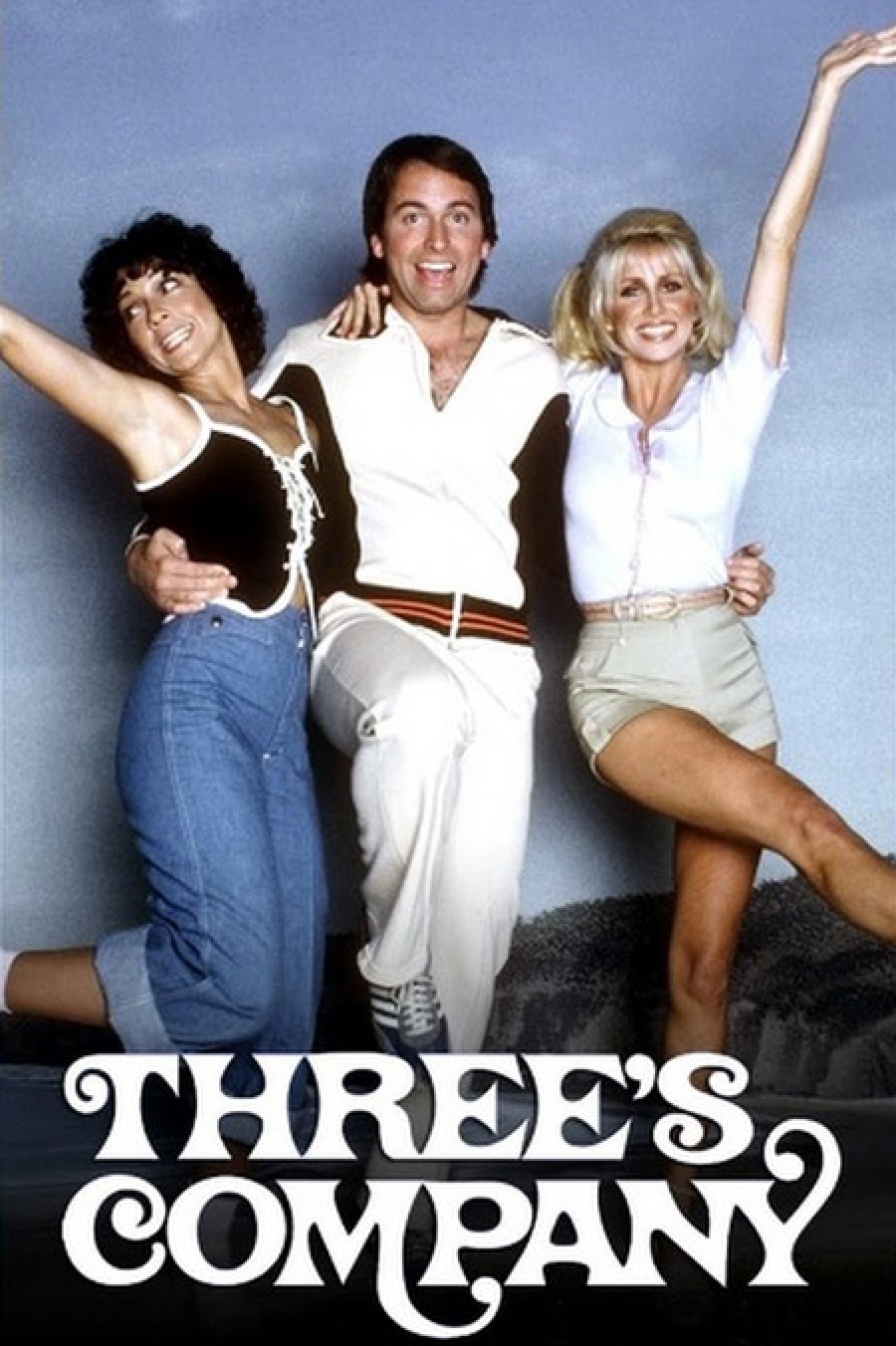
It’s been nearly five decades since Three’s Company first aired in 1977, but the show’s humor, charm, and unique premise continue to resonate with audiences both old and new. While it was very much a product of its time, the sitcom has proven to be timeless in the way it tackled misunderstandings, challenged social norms, and brought laughter into living rooms across America. In 2025, Three’s Company remains a key part of television history, not just as a successful comedy but as a cultural touchstone.
At the heart of the show was the iconic trio: Jack Tripper (played by John Ritter), Janet Wood (Joyce DeWitt), and Chrissy Snow (Suzanne Somers). Their unconventional living arrangement—one man sharing an apartment with two women—was considered bold in the late 1970s. To make it acceptable to their landlord Mr. Roper, Jack had to pretend to be gay, a storyline that opened the door to plenty of comedic complications while also reflecting the shifting social attitudes of the time.
Though the premise was provocative for its era, the humor remained light, often revolving around miscommunication, slapstick, and farcical scenarios. What elevated Three’s Company beyond the typical sitcom was its cast chemistry, particularly John Ritter’s physical comedy. Ritter’s portrayal of Jack Tripper was equal parts lovable goof and relatable everyman. His knack for falling over furniture, reacting with perfect timing, and delivering deadpan lines helped make him one of television’s most memorable leading men.

The rotating lineup of roommates, including Terri Alden (Priscilla Barnes) and Cindy Snow (Jenilee Harrison), ensured the show stayed fresh while continuing its central formula. Meanwhile, supporting characters like Mr. and Mrs. Roper and later Ralph Furley (Don Knotts) provided additional layers of eccentricity and hilarity. Furley’s loud fashion sense and desperate attempts at swagger made him a fan favorite in later seasons.
Behind the scenes, the show wasn’t without drama. Suzanne Somers famously left the series after a contract dispute, sparking headlines and changing the show’s trajectory. Yet even through cast changes and off-screen tension, the series remained strong in the ratings, ending after eight successful seasons in 1984.
Today, Three’s Company lives on in reruns, streaming platforms, and through its spinoffs like The Ropers and Three’s a Crowd. Younger viewers are discovering it for the first time, drawn in by its light-hearted tone and nostalgic aesthetic. For longtime fans, it remains a comfort watch—a reminder of simpler times when a misunderstanding about who was hiding in the closet could spark 22 minutes of chaotic fun.
In a television landscape now filled with dark dramas and complex character arcs, Three’s Company stands out as a reminder of the power of pure comedy. Its legacy endures not just because it made people laugh, but because it embraced the idea that joy, no matter how silly, is worth celebrating. And even after 47 years, the door to Apartment 201 still feels wide open.
